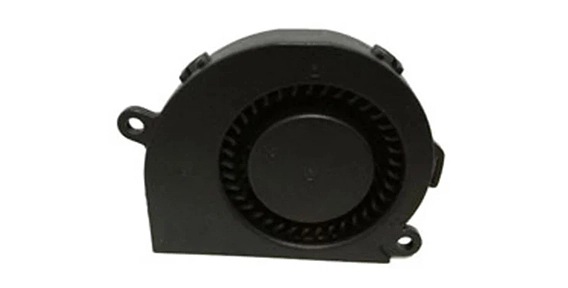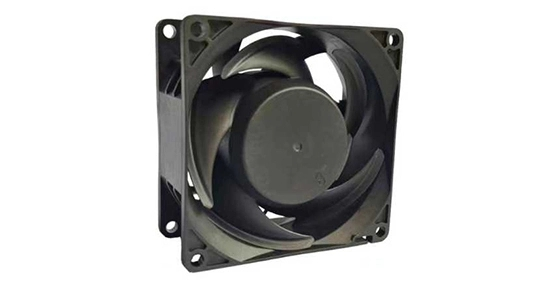Automotive exhaust fans are an essential component of vehicles that play a significant role in maintaining the engine's performance and preventing overheating. These fans are typically located in the engine compartment near the exhaust manifold. In this article, we will explore the impact of automotive exhaust fans on environmental footprints, fuel efficiency, and the prevention of engine overheating.
The Impact of the Automotive Exhaust Fan on Environmental Footprints
As concerns about environmental pollution and carbon emissions continue to rise, it is crucial to examine the impact of automotive exhaust fans on our environmental footprints. The primary function of these fans is to expel hot air and gases from the vehicle's exhaust system. By doing so, they facilitate the combustion process and ensure that harmful emissions are expelled from the engine.
One of the most significant environmental benefits of automotive exhaust fans is reducing the emission of harmful pollutants into the atmosphere. These fans help in effectively removing gases such as carbon monoxide (CO), nitrogen oxides (NOx), and hydrocarbons (HC) from the exhaust system. By regulating and controlling the release of these harmful gases, automotive exhaust fans play a crucial role in reducing air pollution and improving overall air quality.
The Impact of the Automotive Exhaust Fan on Fuel Efficiency
In addition to their environmental impact, automotive exhaust fans also have a significant influence on fuel efficiency. The combustion process in a vehicle's engine generates substantial amounts of heat. If this heat is not effectively removed, it can negatively impact fuel efficiency.
Automotive exhaust fans enable efficient cooling of the engine, preventing overheating and maintaining optimal operating temperatures. When the engine is kept at the right temperature, it operates more efficiently, leading to improved fuel efficiency. This is especially crucial for vehicles that operate in hot climates or heavy traffic conditions, where the risk of overheating is higher.
Furthermore, axial fan function assists in better combustion by ensuring an adequate air-to-fuel ratio. Proper airflow helps in the complete combustion of fuel, leading to a more efficient utilization of the fuel and reduced fuel consumption. Therefore, an optimally functioning exhaust fan directly contributes to better fuel efficiency and reduced carbon dioxide (CO2) emissions.

The Role of the Automotive Exhaust Fan in Preventing Engine Overheating
Engine overheating can be a serious issue with severe consequences. It can lead to engine damage, reduced engine performance, and even complete engine failure. Automotive exhaust fans have a crucial role in preventing engine overheating by effectively cooling the engine.
These fans work in conjunction with the vehicle's cooling system, drawing in cool air and pushing out hot air. By maintaining a steady airflow, they prevent the buildup of excessive heat and help in dissipating it quickly. This prevents the engine from reaching dangerously high temperatures, ensuring it operates within its optimal temperature range.
Regular maintenance and inspection of the automotive exhaust fan are essential to prevent engine overheating. Any malfunction or damage to the fan can result in inadequate cooling, leading to potential engine issues. Therefore, timely replacement or repairs of faulty exhaust fans are necessary to maintain the engine's optimal performance and prevent overheating.
Automotive exhaust fans are a crucial component of vehicles, providing significant benefits in terms of reducing environmental footprints, improving fuel efficiency, and preventing engine overheating. These fans play a vital role in expelling harmful pollutants from the exhaust system, minimizing air pollution, and contributing to better air quality. Additionally, they aid in maintaining optimal operating temperatures, enhancing fuel efficiency, and reducing carbon emissions. Furthermore, by effectively cooling the engine, automotive exhaust fans prevent engine overheating and ensure the longevity and performance of the vehicle. Therefore, it is essential to prioritize regular maintenance and inspection of these fans to ensure their optimal functioning and reap the benefits they offer.


 EN
EN 

 +
+
 +
+
 +
+



